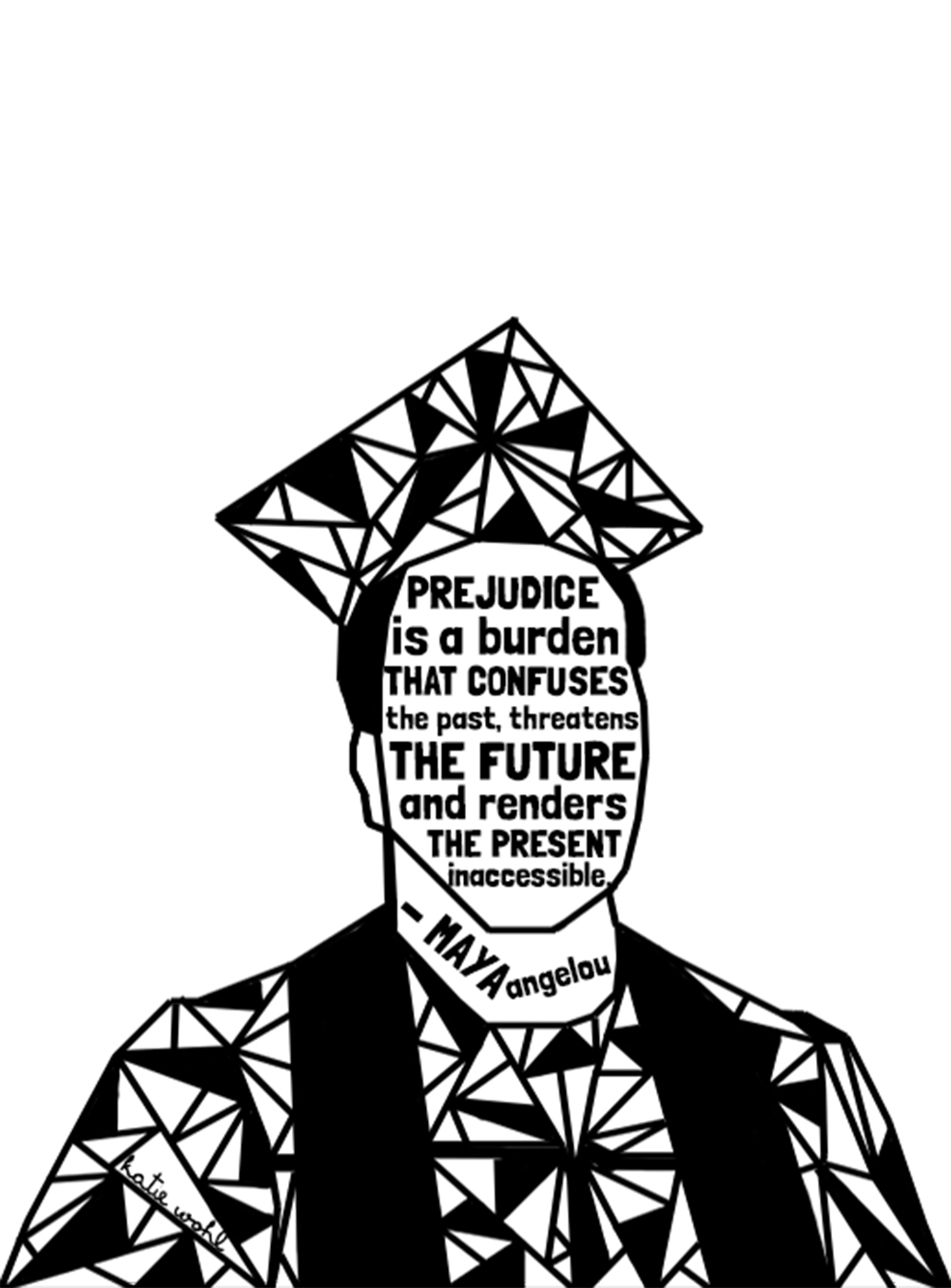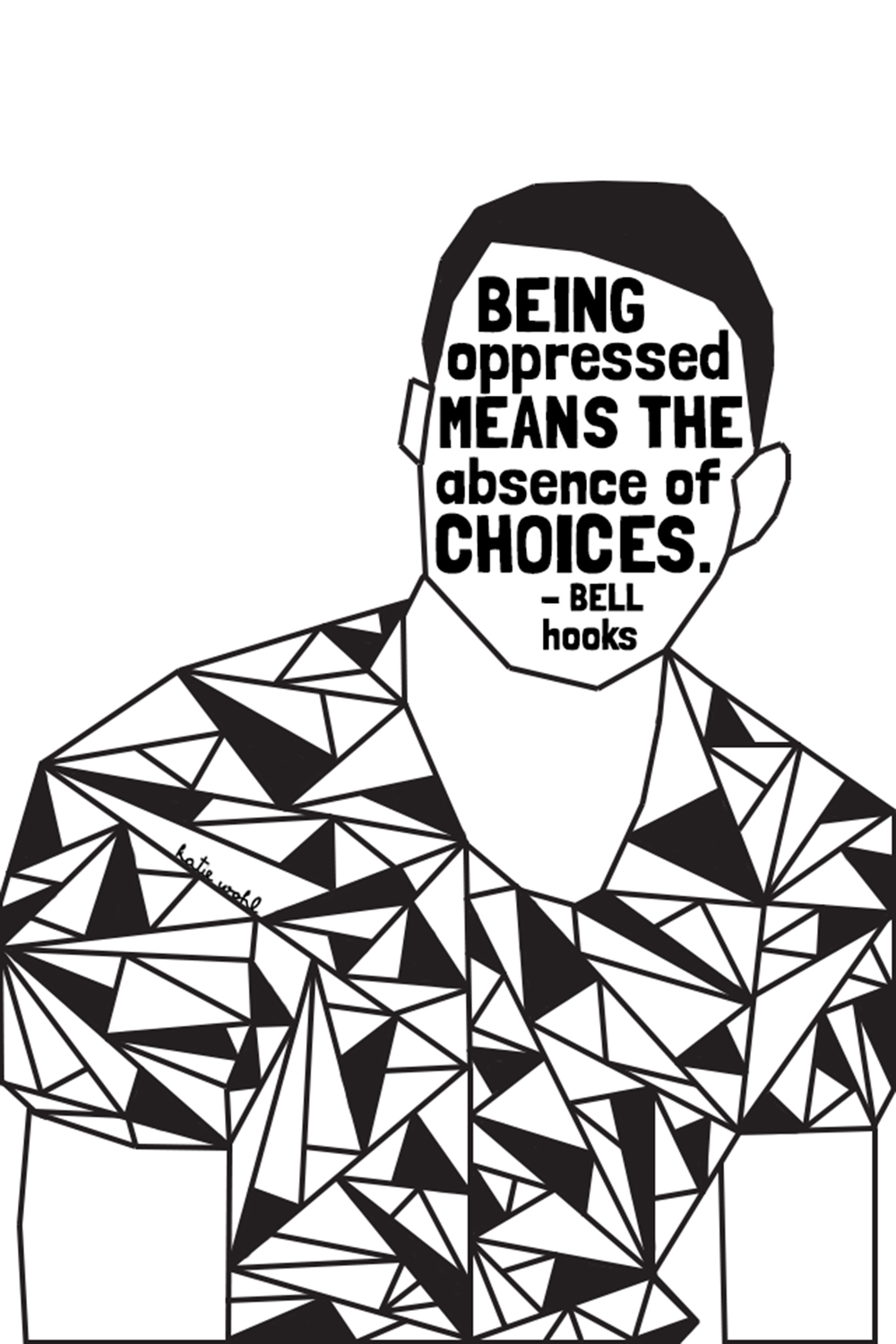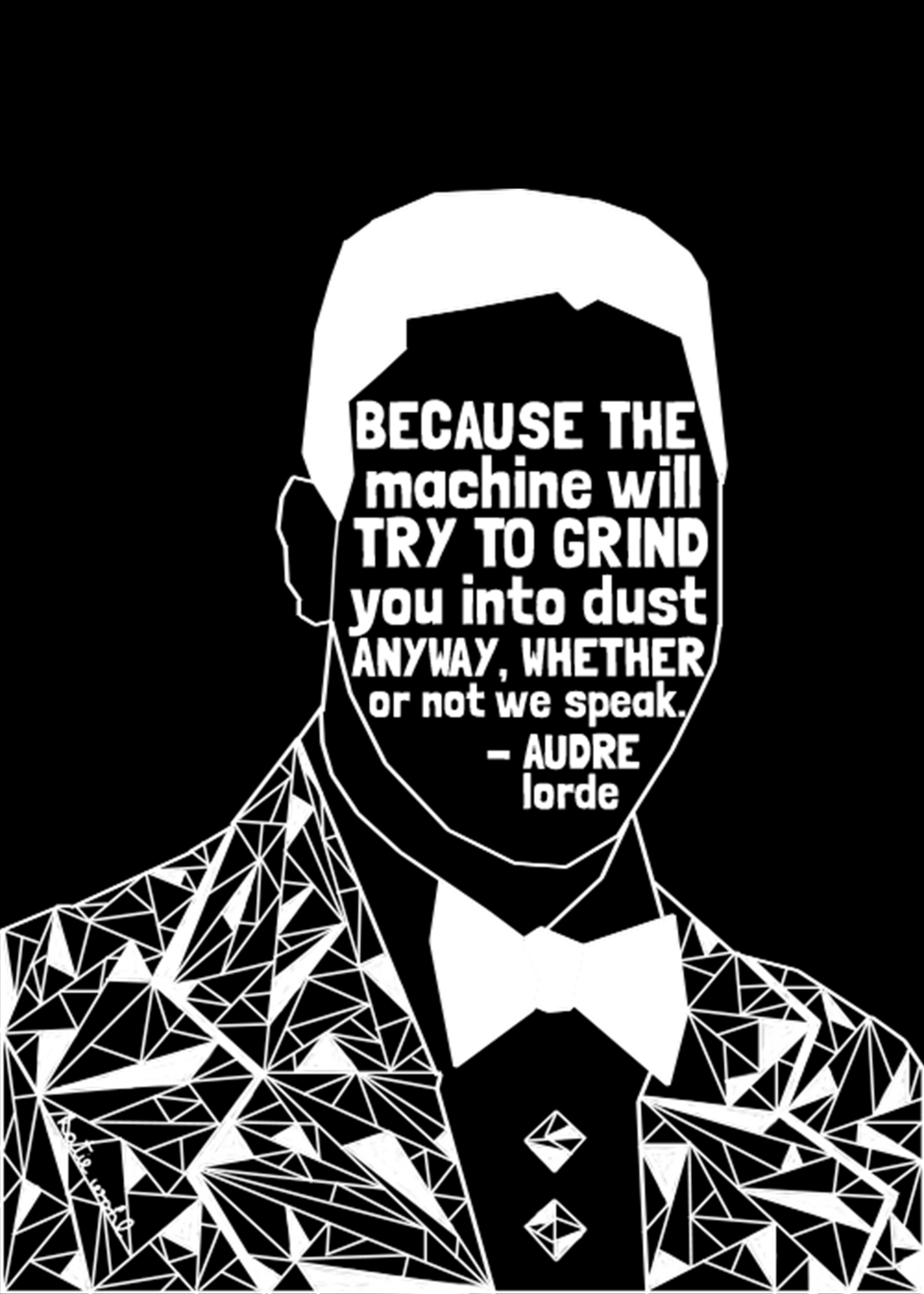When I think of profound, articulate, phenomenal, and creative women, I think of bell hooks, Maya Angelou, and Audre Lorde. These women paved the way for many black women to take action and critically think about feminism and womanhood in America. Not only did their work inspire people around the United States but it helped to create a new paradigm of thinking about humanity across the globe. I’m honored to share the work and history of these women in honor of Black History Month

Maya Angelou
“When you learn, teach, when you get, give.” These are the profound words of the feminist, poet, civil rights activist, and writer Maya Angelou. Born Marguerite Annie Johnson on April 4, 1928, Maya Angelou was destined to change the world. It was through her work in the Civil Rights movement poems, and autobiographies that solidified Maya as a diamond in the ruff.
In Maya Angelou’s works such as “I know Why the Caged Bird Sings” and “The Heart of a Woman,” she addressed issues within her own personal life, racism, identity, family and travel. Angelou received the Spingarn Medal, National Medal of Arts and Presidential Medal of Freedom in 2011 and also was awarded over 50 honorary degrees and honors for her work. Her work encompassed the struggles and triumphs of a black woman in America. Angelou was truly a phenomenal woman indeed.

bell hooks
Primarily known for her work as a feminist and social activist, bell hooks has published over 30 books and scholarly articles. In her book, “Feminism is for Everybody: Passionate Politics,” hooks presents ideals of what it is to be a feminist. Issues of human agency, race relations, gender roles and the importance of self-empowerment are basis of her work. Hooks’ passion to address the goals of feminism, honor of the black body, cultural construction of power and oppression can be found in her prophetic words. Her work ventured into a humanistic consciousness that fundamentally enables the building of healthy relationships between humans without conditions.
“Visionary feminism is a wise and loving politics,” hooks wrote. “It is rooted in the love of male and female being, refusing privilege one over the other. The soul of feminist politics is the commitment to ending patriarchal domination of women and men, girls, and boys…A genuine feminist politics always bring us from bondage to freedom, from lovelessness to loving.”

Audre Lorde
As a black writer, feminist, womanist, lesbian and civil rights activist, Audre Lorde reshaped the theoretical mindset of feminism. As a child of immigrants from Barbados and Carriacou, Lorde immersed herself in writing poetry as an outlet for self-expression. While working as a visiting professor at the Free University of Berlin, Lorde helped to promote the Afro-German women’s movement. Audre’s profound work of dissecting cultural issues and theoretical contribution to intersectionalism was ahead of her time.
“Cables to Rage,” which was published in 1970, was Lorde’s poetic crown as a writer. In this body of work, she explored themes of childbirth, motherhood, betrayal and love. The series of essays and speeches presented in ‘Sister Outsider’ explored the experiences of marginalized groups, racism, and focused on the patriarchal lens. Most of Lorde’s theoretical framework analyzed the underlying issues of race and sexuality in America. In a world filled with injustices and exploitation, Lorde said it best “Divide and conquer, in our world, must become define and empower.”
The contribution of these women to black history and critical thinking, as well as their abilities to provoke measures to restoring humanity are unparalleled. Therefore, we should all be mindful to honor their work in our lives throughout the community, and thoughtfully across the world. Thank you, bell hooks, Maya Angelou, Audre Lorde, and all the other pioneers of black excellence.
Artwork by Katie Wohl. www.KatieWohl.com
Katie Wohl’s art series “Black Lives Matter – Black Voices,” was inspired by the frustration and sadness she experienced and saw her community experience after Michael Brown was murdered on August 9, 2014, by Darrell Wilson of the Ferguson Police Department. After years of watching countless black men and women murdered by police officers, security guards and vigilantes in America art became an important outlet. So, she created art that would not only act as a therapeutic vehicle for herself, but she hoped the work might resonate with a larger community of people who are taking an active role in the problems in their society and maybe even garner attention from those who remained blind to the structural and institutional issues of race in America. . She then started designing black and white portraits of black men and women using quotes from black female writers.All proceeds are donated to the National Police Accountability Project (NPAP).

